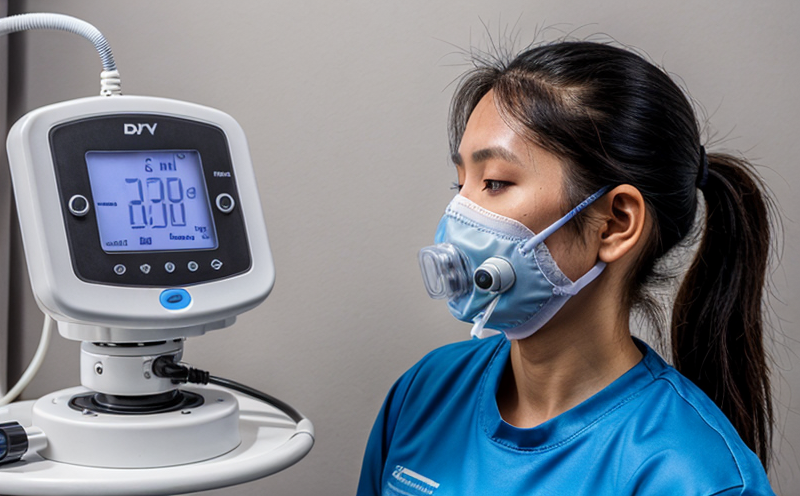ASTM F2101 Bacterial Filtration Efficiency Testing for Masks
The ASTM F2101 standard is a critical guideline for ensuring that masks and respirators can effectively filter bacteria. This test measures the ability of a mask to block bacterial penetration, which is particularly important in healthcare settings where the spread of infectious agents must be minimized.
ASTM F2101 testing involves subjecting the sample material to an aerosolized suspension containing Lactococcus lactis subsp. diacetylactis, a bacterium that mimics human pathogens in size and shape. The test evaluates how well the mask can prevent these bacteria from passing through it, thereby ensuring its efficacy.
The testing procedure is meticulously designed to simulate real-world conditions. It involves placing the sample material between two chambers where an aerosolized bacterial suspension is generated at a specified pressure differential across the material. The bacterial penetration rate is then measured and compared against established criteria.
This test is essential for medical devices that are intended to protect users from airborne bacteria, including surgical masks, N95 respirators, and other personal protective equipment (PPE). Ensuring compliance with ASTM F2101 helps manufacturers meet regulatory requirements and enhances product reliability in critical environments like hospitals and clinics.
The results of this test provide crucial insights into the performance of a mask's filtration system. Compliance with ASTM F2101 not only ensures that masks can effectively protect against bacterial penetration but also builds consumer trust in medical products.
Compliance with this standard is mandatory for many regulatory bodies and is recognized internationally, ensuring that masks meet the highest standards of safety and effectiveness.
Benefits
- Enhanced Safety: Ensures that respiratory devices effectively filter out harmful bacteria, reducing the risk of infection.
- Regulatory Compliance: Helps manufacturers meet stringent regulatory requirements for medical devices.
- Increased Consumer Confidence: Provides assurance to healthcare professionals and patients about the safety and efficacy of PPE products.
- Potential Cost Savings: Reduces the likelihood of recalls and product failures, leading to long-term cost savings.
International Acceptance and Recognition
The ASTM F2101 standard has gained widespread acceptance in both North America and Europe. It is recognized by regulatory agencies such as the U.S. Food and Drug Administration (FDA) and the European Union's Notified Bodies.
In the United States, compliance with ASTM F2101 is a requirement for masks to be sold or distributed within healthcare facilities. Similarly, in the EU, adherence to this standard ensures that respirators meet the necessary safety and performance criteria as defined by Directive 93/42/EEC on Medical Devices.
The international recognition of ASTM F2101 underscores its importance in ensuring global consistency in mask quality and effectiveness. This standardization is crucial for facilitating trade between countries and ensuring that products are universally safe and effective.
Use Cases and Application Examples
| Use Case | Description |
|---|---|
| Hospital Settings | Masks must protect healthcare workers from airborne bacteria, ensuring a safe environment for patients. |
| Surgical Procedures | ASTM F2101 testing is critical for surgical masks to prevent bacterial contamination during procedures. |
| Dental Clinics | Respirators must protect dental professionals and patients from infectious agents. |
| Infectious Disease Outbreaks | Masks used in quarantine zones need to be highly effective at filtering out bacteria, minimizing the spread of pathogens. |
| Air Quality Monitoring | ASTM F2101 testing is also relevant for monitoring devices that are intended to improve indoor air quality by filtering bacteria. |
| N95 Respirators in Manufacturing Environments | Masks used in manufacturing facilities need to protect workers from airborne pathogens, ensuring a safe work environment. |





